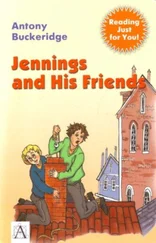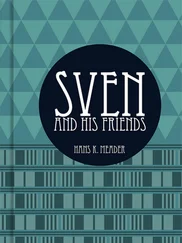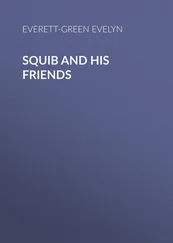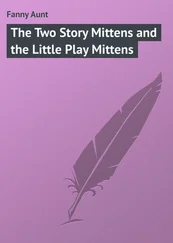Marshall Saunders - Golden Dicky, The Story of a Canary and His Friends
Здесь есть возможность читать онлайн «Marshall Saunders - Golden Dicky, The Story of a Canary and His Friends» — ознакомительный отрывок электронной книги совершенно бесплатно, а после прочтения отрывка купить полную версию. В некоторых случаях можно слушать аудио, скачать через торрент в формате fb2 и присутствует краткое содержание. Жанр: foreign_children, foreign_antique, foreign_prose, на английском языке. Описание произведения, (предисловие) а так же отзывы посетителей доступны на портале библиотеки ЛибКат.
- Название:Golden Dicky, The Story of a Canary and His Friends
- Автор:
- Жанр:
- Год:неизвестен
- ISBN:нет данных
- Рейтинг книги:5 / 5. Голосов: 1
-
Избранное:Добавить в избранное
- Отзывы:
-
Ваша оценка:
- 100
- 1
- 2
- 3
- 4
- 5
Golden Dicky, The Story of a Canary and His Friends: краткое содержание, описание и аннотация
Предлагаем к чтению аннотацию, описание, краткое содержание или предисловие (зависит от того, что написал сам автор книги «Golden Dicky, The Story of a Canary and His Friends»). Если вы не нашли необходимую информацию о книге — напишите в комментариях, мы постараемся отыскать её.
Golden Dicky, The Story of a Canary and His Friends — читать онлайн ознакомительный отрывок
Ниже представлен текст книги, разбитый по страницам. Система сохранения места последней прочитанной страницы, позволяет с удобством читать онлайн бесплатно книгу «Golden Dicky, The Story of a Canary and His Friends», без необходимости каждый раз заново искать на чём Вы остановились. Поставьте закладку, и сможете в любой момент перейти на страницу, на которой закончили чтение.
Интервал:
Закладка:
However, up in the blue heaven, the sun was shining, and there was warmth in it, for this was February and spring would soon be with us.
I looked up and down the street. It seemed very quaint to me, and I stretched out my neck to find out whether I could see the end of it. I could not. It went away up, up toward a hill with trees on it, and, as I found out later, away down south to a big lake where the wharves are, and the ships and the railroads, and the noise and the traffic, and also a lovely island that I had heard the Martins say was a fine place for a summer outing.
The sparrow was watching me, and at last he said, “How do you like it out here?”
“Very much,” I said. “It is so big and wonderful, and there are so many houses standing away back from the street. I thought there were no houses in the world but just the Martins’, and those I could see from their windows.”
He smiled at me, but said nothing, and I went on, “And the trees are so enormous and so friendly. I love to see them reaching their gaunt arms across the street to shake hands. Our fir trees in the bird-room will seem very small to me now.”
He shook his little dull-colored head. “Alas! the neighborhood is not what it used to be. A few years ago all these were private houses. Now boarding houses and lodging houses and even shops are creeping up from town.”
I didn’t know much about this, but I said timidly, “Isn’t that better for you sparrows? Aren’t there more scraps?”
“No, not so many. When the rich people lived here, we knew what we had to depend on. Either they would feed us, or they would not. Several kind-hearted ladies used to have their servants throw out food for neighborhood birds at a certain hour every day, and your Mrs. Martin has always kept a little dish full of water on her lawn beside the feeding-table. I suppose you have seen that from your bird-room window.”
“Oh, yes,” I said. “We canaries used to sit on the window sill on cold mornings and watch Mr. Martin wading through the snow with the nice warm food that his wife was sending out for the birds.”
“These boarding-house and lodging-house people come and go,” the sparrow went on. “Some feed us, and some don’t. Usually we are stuffed in summer, and starved in winter.”
“I have heard Mrs. Martin say,” I observed, “that wild birds should be assisted over bad seasons and fed whenever their natural supply gives out.”
“Sparrows don’t need food in summer,” said Chummy, “because then we expect to do our duty to human beings by eating all the insects we can, and the bad weed seeds.”
I said nothing. I thought I had not known my new friend long enough to find fault with him, but I wanted very much to ask him if he really thought English sparrows did do their duty by human beings.
“Would you like to see my little house?” he asked.
“Very much,” I replied, and I followed him as he flew to another tree. We were now further up the street where we could look back at our red brick house which is a double one, and quite wide. Now we were in front of one that stood a little way from its neighbors. It was tall and narrow, and in the middle of its high north wall was a small hole where a brick had fallen out.
Chummy pointed to it proudly. “There’s not a snugger sparrow bedroom in the city than that,” he said, “for right behind the open place is a hole in the brick work next the furnace chimney. No matter how cold and hungry I am when I go to bed, I’m kept warm till breakfast time, when I can look for scraps. Many a feeble old sparrow and many a weak one has died in the bitter cold this winter. They went to bed with empty crops and never woke up. We’ve had twelve weeks of frost, instead of our usual six, and this is only the fifth day of thawing weather that we’ve had all winter.”
“Everything seems topsy-turvy this winter,” I said. “Human beings are short of coal and food, and they’re worried and anxious. I am very sorry for them.
“But times will improve, Chummy. The old birds say that black hours come, but no darkness can keep the sun from breaking through. He is the king of the world.”
Chummy raised his little dark head up to the sunlight. “I’m not complaining, Dicky. I wish every little bird in the world had such a snug home as mine.”
“How did the hole come in the wall?” I asked.
“Some workmen had a scaffold up there to repair the top of the chimney. When they took it down, they knocked a brick out.”
“Is it large enough for you in nesting time?”
“Oh, yes; don’t you want to come and see it? You’re not afraid?”
“Oh, no,” I said warmly. “I know whenever I get a good look into a bird’s eye whether I can trust him or not.”
“Come along, then,” said Chummy, deeply gratified, and I flew beside him to his little house.
CHAPTER VI
CHUMMY TELLS THE STORY OF A NAUGHTY SQUIRREL
OH, how snug!” I exclaimed. “You have a little hall and a bedroom, and how clean it is! The old birds say they like to see a bird tidy his nest from one year to another. Do you keep the same mate?”
“I do,” he replied. “I always have Jennie, but as you probably know, sparrows don’t pair till spring. In the winter the birds are in flocks. Jennie is spending these hard months with her parents downtown near the station because the food supply is better there. I often go to see her, and I expect her back soon to begin housekeeping. We like to get ahead of the others in nesting, for there are evil birds who try every year to drive us from our desirable home.”
“Everything born has to fight,” I said cheerfully.
“I don’t know much about canaries,” said Chummy. “All that I have seen were very exclusive and haughty, and looked down on us street birds.”
“Some of my family are that way,” I sighed, “but I have been much with human beings and my little head has more wisdom in it.”
“I like you,” Chummy began to say heartily; then he stopped short, cried out, and said, “Duck your head quick and come inside!”
I scuttled from his wide open hallway into his little bedroom, wondering what had happened. A shower of nutshells had just been dropped past our beaks. “Who’s doing that?” I asked.
“Squirrie—he hates me because he can’t get a foothold to explore this house.”
“And who is Squirrie?” I asked.
“The worst little rascal of a squirrel that you ever saw. He respects nobody, and what do you think is his favorite song?—not that he can sing. His voice is like a crow’s.”
“I can’t imagine what kind of songs a squirrel would sing,” I said.
“I’ll run over it for you,” said Chummy, “though I haven’t a very good voice myself.
“‘I care for nobody, no not I,
And nobody cares for me.
I live in the middle of Pleasant Street
And happy will I be!’
“Now what do you think of that for a selfish song in these hard times?”
I laughed heartily. “Perhaps you take Squirrie too seriously. I’d like to see the little rogue. Does he live in this house of yours?”
“Yes, right up over us under the roof. He gnawed a hole through from the outside this summer, and stored an enormous quantity of nuts that he stole from good Mrs. Lacey at the corner grocery on the next street. He has an enormous place to scamper about in if he wishes to stretch his legs. He says in the corner of it he has a delightfully warm little bed-place, lined with tiny soft bits of wool and fur torn from ladies’ dresses, for he has the run of most of the bedrooms in the neighborhood. Have you seen the two old maids that live in the big attic of this house?”
“Yes, my mistress calls them the bachelor girls,” I said politely.
Читать дальшеИнтервал:
Закладка:
Похожие книги на «Golden Dicky, The Story of a Canary and His Friends»
Представляем Вашему вниманию похожие книги на «Golden Dicky, The Story of a Canary and His Friends» списком для выбора. Мы отобрали схожую по названию и смыслу литературу в надежде предоставить читателям больше вариантов отыскать новые, интересные, ещё непрочитанные произведения.
Обсуждение, отзывы о книге «Golden Dicky, The Story of a Canary and His Friends» и просто собственные мнения читателей. Оставьте ваши комментарии, напишите, что Вы думаете о произведении, его смысле или главных героях. Укажите что конкретно понравилось, а что нет, и почему Вы так считаете.












